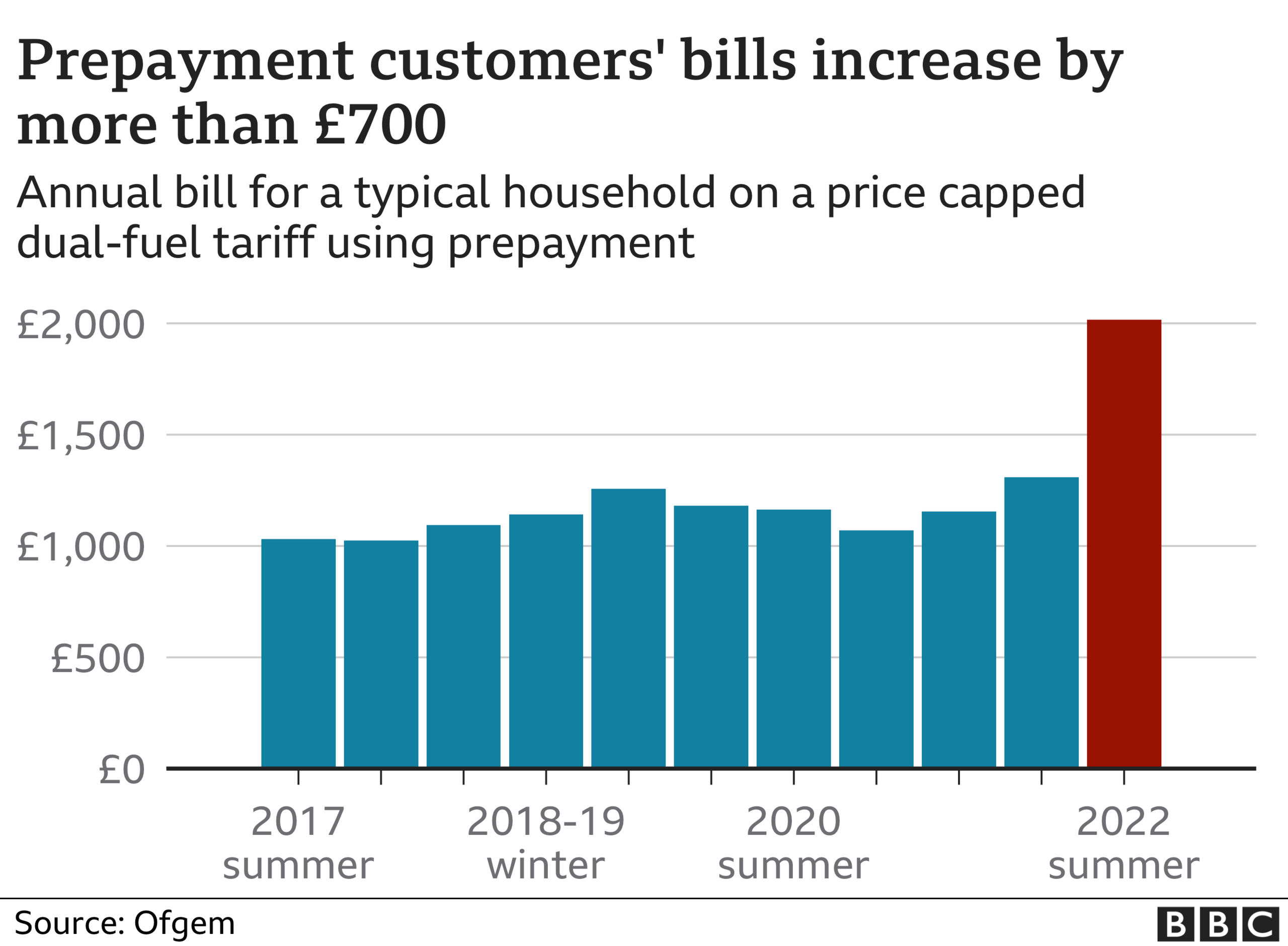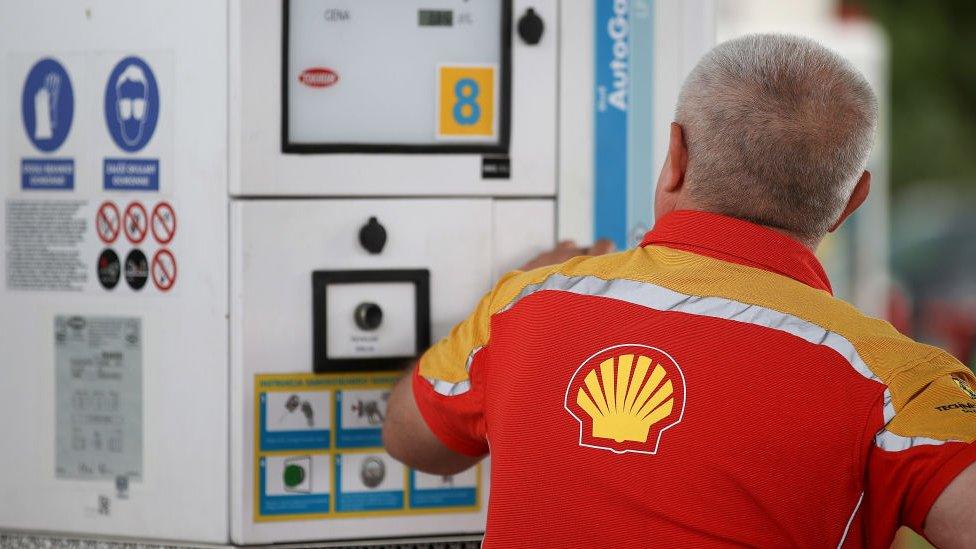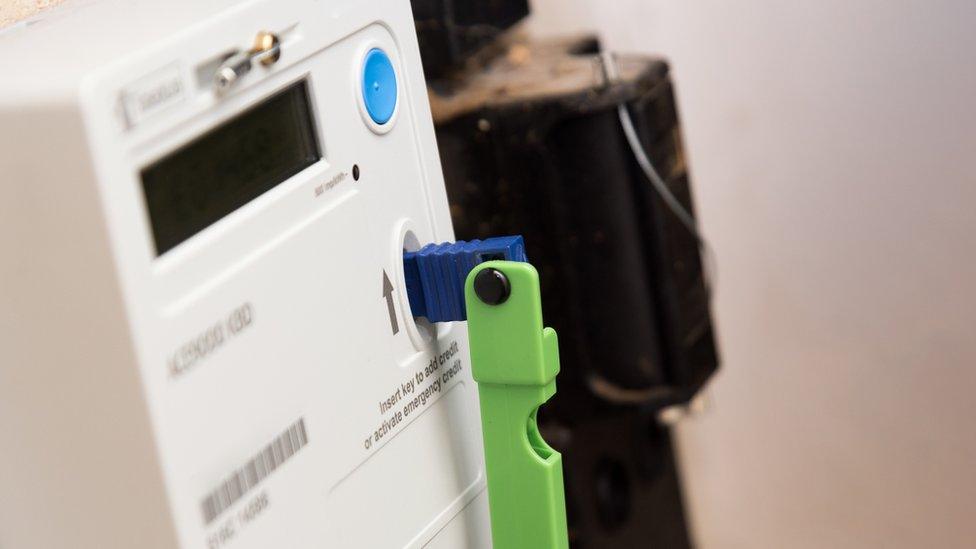Energy Ombudsman complaints at a record high
- Published

Complaints have reached a record high, increasing more than 50% in two years
Complaints made to the Energy Ombudsman by frustrated customers are at a record high, new data shows.
Figures shared with the BBC show 105,340 complaints were received by the Ombudsman in 2022, a jump of nearly 20,000 complaints since last year.
The data comes as energy suppliers are under scrutiny over their practices, as customers struggle with rising bills.
Energy UK, which represents suppliers, said the Ombudsman "plays an important role" in resolving complex cases.
Customers can appeal to the Energy Ombudsman to independently examine disputes between them and their supplier if the supplier has failed to satisfactorily resolve an issue.
Incorrect billing, poor customer service and problems with switching suppliers are the main causes of complaint, BBC Radio 4's Money Box programme found.
Of the cases heard, 75% ended up being resolved in the customer's favour.
During the past year, energy bills have soared for UK households, deepening the cost-of-living crisis.
The price hike is principally attributed to the war in Ukraine prompting a reduction in the supply of Russian gas, in addition to the demand for energy skyrocketing after Covid restrictions came to an end around the world.
To deal with the surge, the government introduced an energy price guarantee which means that the typical household should pay no more than £2,500 (rising to £3,000) in April. This is not an absolute maximum and will vary depending on energy use.
It also introduced a one-off cost-of-living payment, with all households automatically receiving a £400 discount on their fuel bills, spread over six months between October 2022 and March 2023.
But data from Which? suggests many UK households are still struggling to keep up with their bills, with some 2.3 million UK households missing an essential payment last month, up from 1.9 million in December.
Energy suppliers are also facing renewed scrutiny following shocking media reports about the forced installation of pre-payment meters in the homes of vulnerable people.
Energy suppliers were being given permission to force entry into some of the UK's poorest homes when customers fell behind on bills in order to install pre-payment meters, an i newspaper, external investigation in December revealed.
Pre-payment meters are the most expensive way to pay for energy, with customers' bills increasing by more than £700 in the last year. There are currently more than four million UK households on pre-payment meters.
More recently, an investigation by The Times, external found that debt agents for British Gas had broken into homes to fit meters. Following the Times report, energy companies have been asked by the industry regulator Ofgem to suspend the forced installation of pre-payment meters.

Jonathan Brearley, the regulator's boss, said he had ordered the review into pre-payment meters to "uncover poor practice" and that he would not hesitate to take the "strongest action in our powers" where needed.
On Thursday, Chris O'Shea, the boss of Centrica which owns British Gas, told the BBC: "There is nothing that I can say that can express the horror I had when I heard this.
"It is completely unacceptable. The contractor that we've employed - Arvato - has let us down, but I am accountable for this."
Energy UK said, while it "works tirelessly" to resolve complaints, its members have seen a fourfold increase in the number of people contacting them.
A spokesperson said: "With millions of people struggling to pay energy bills as the cost of living soars, more people than ever are contacting their energy supplier for help. Customer service teams have seen a fourfold increase in customer contact and are doing their best to respond to the huge numbers of customers getting in touch - often about complex issues.
"Our members work tirelessly to resolve complaints themselves. However, where they are unable to come to a resolution with the customer themselves, the Ombudsman plays an important role in making sure complaints can be resolved."
Related topics
- Published2 February 2023

- Published4 February 2023
